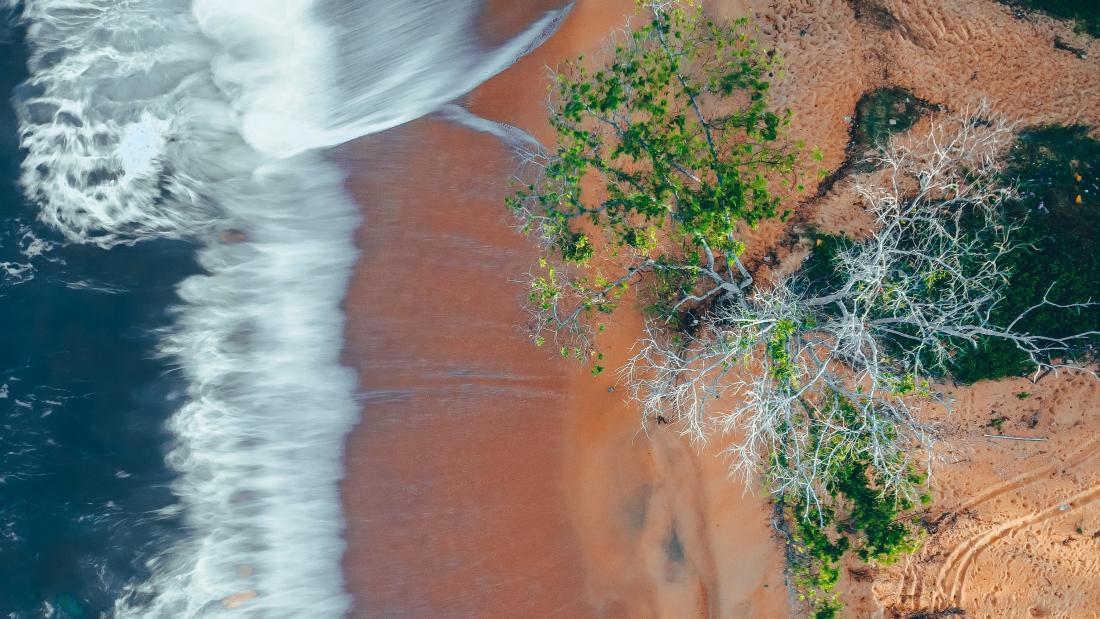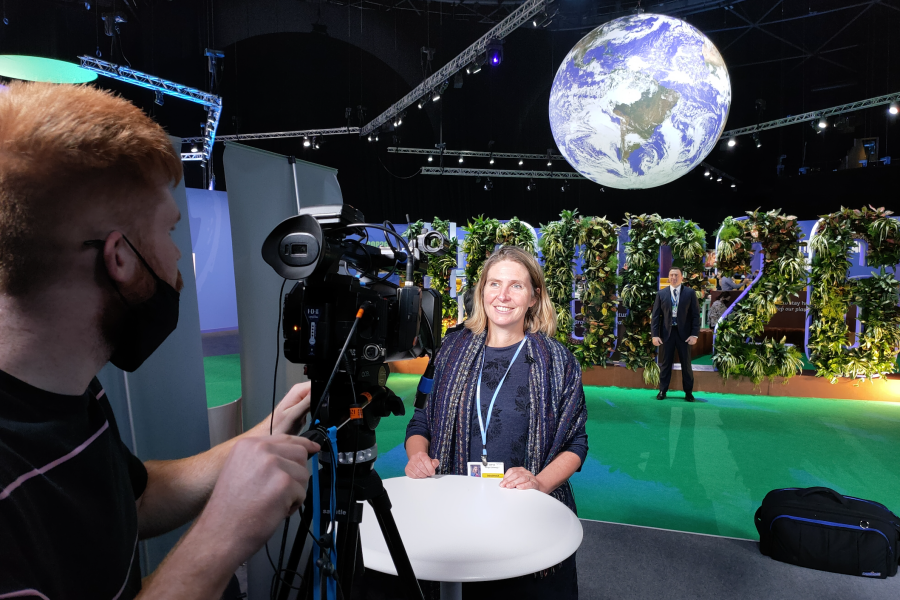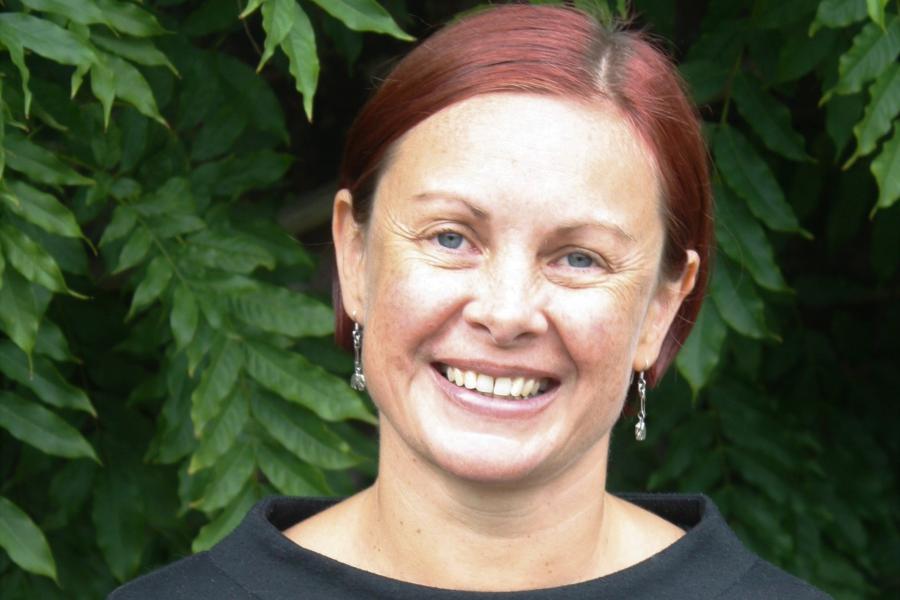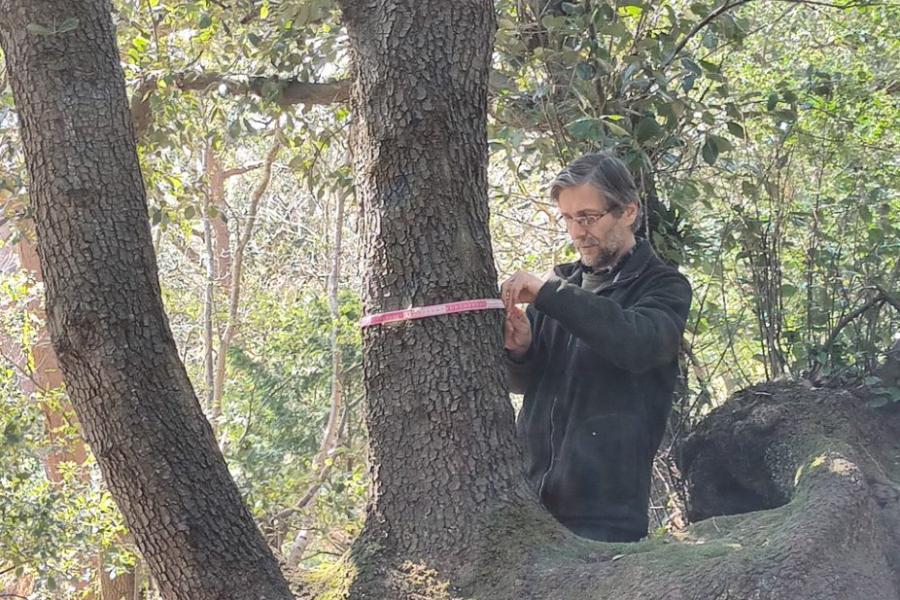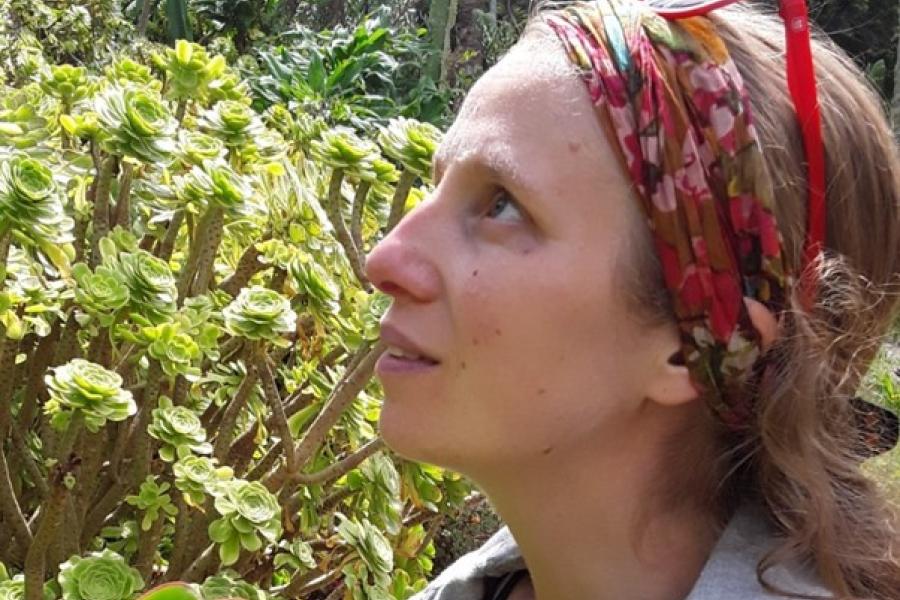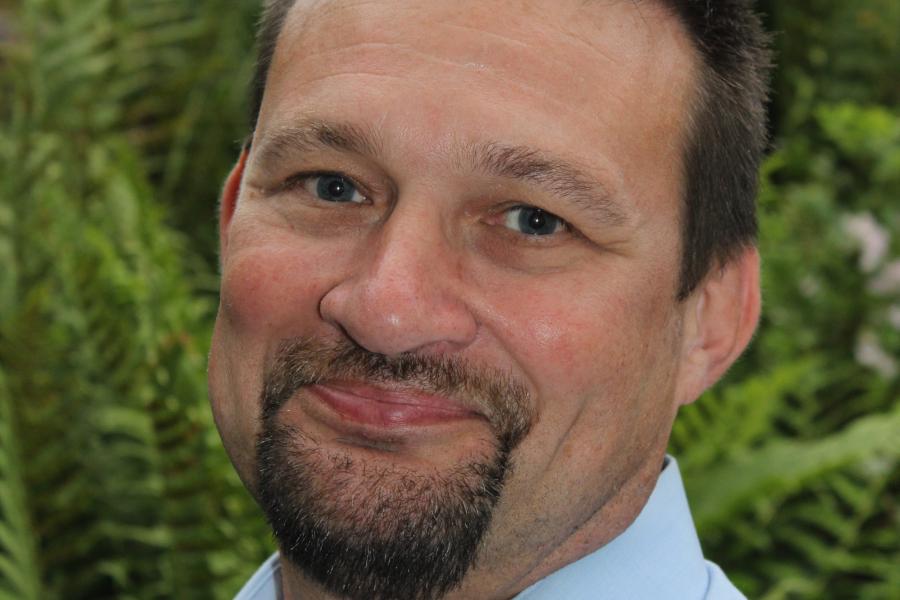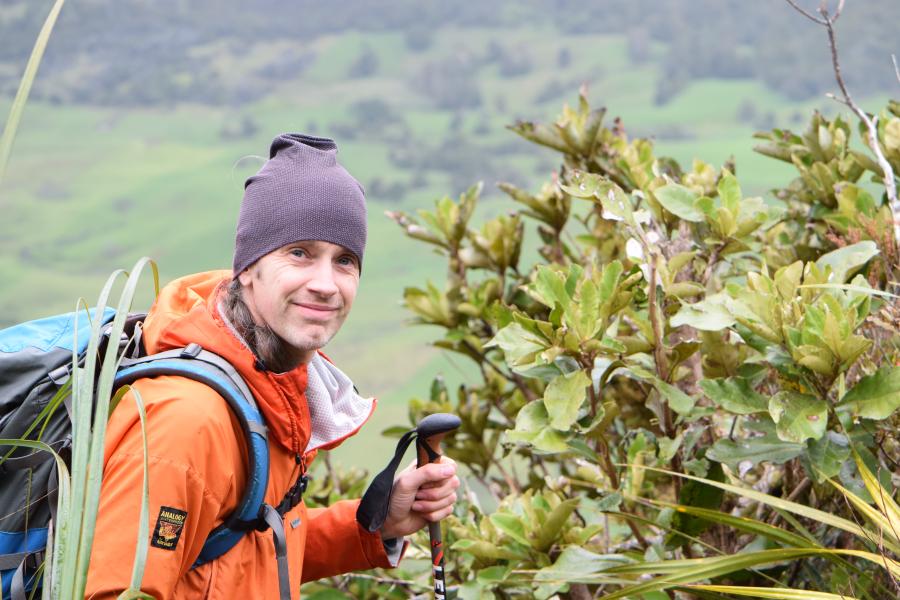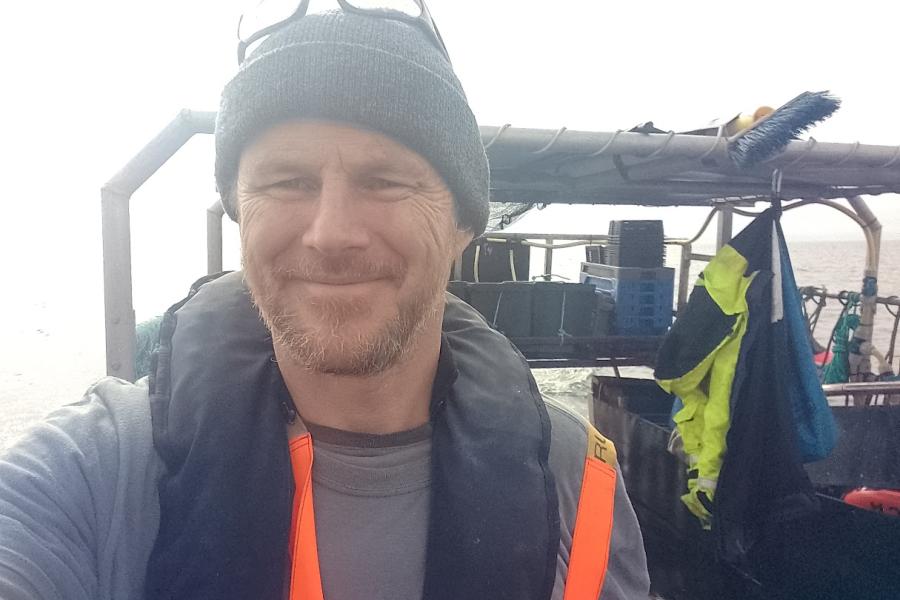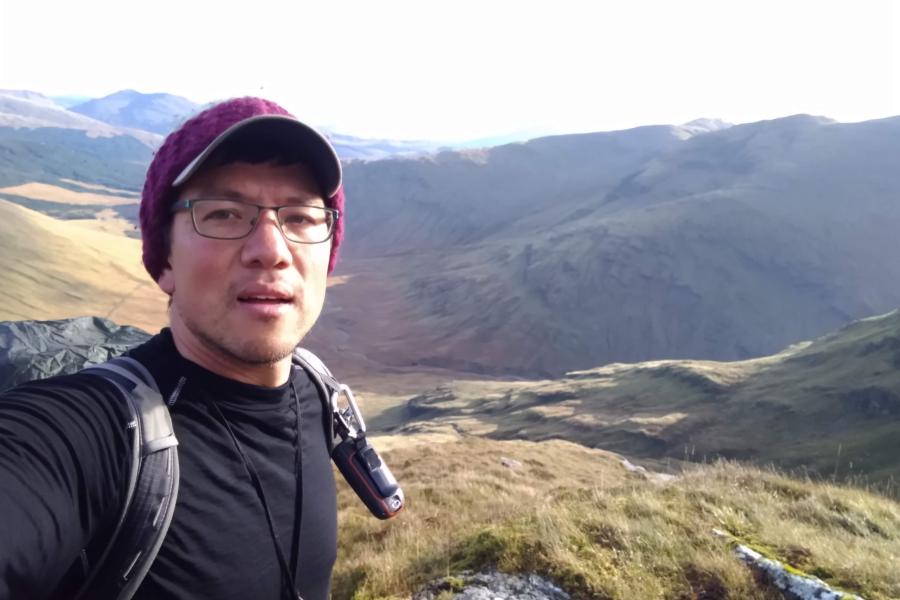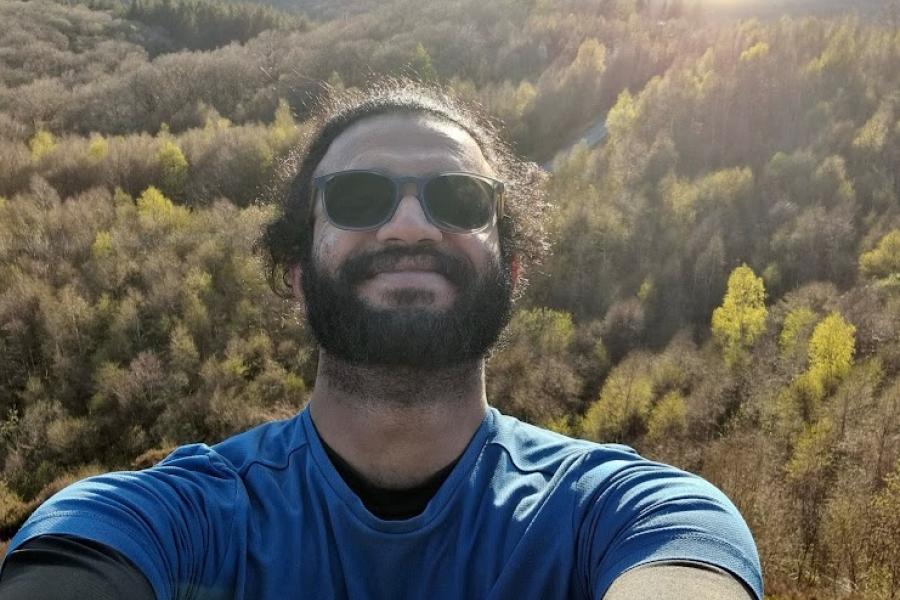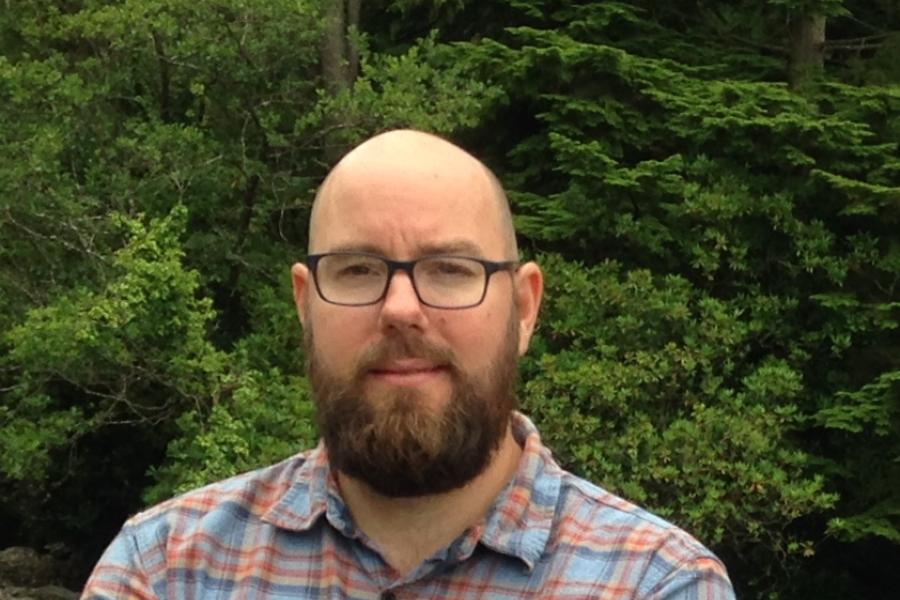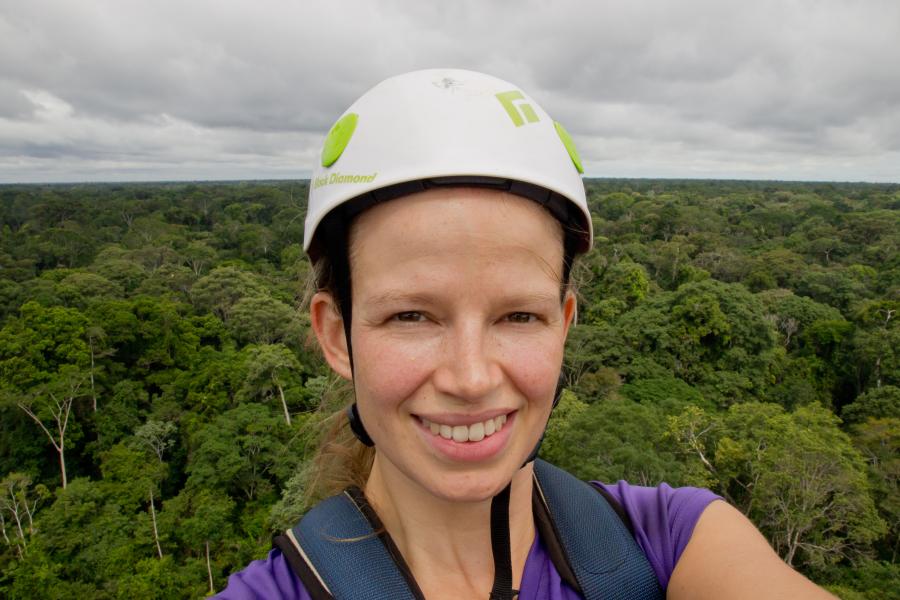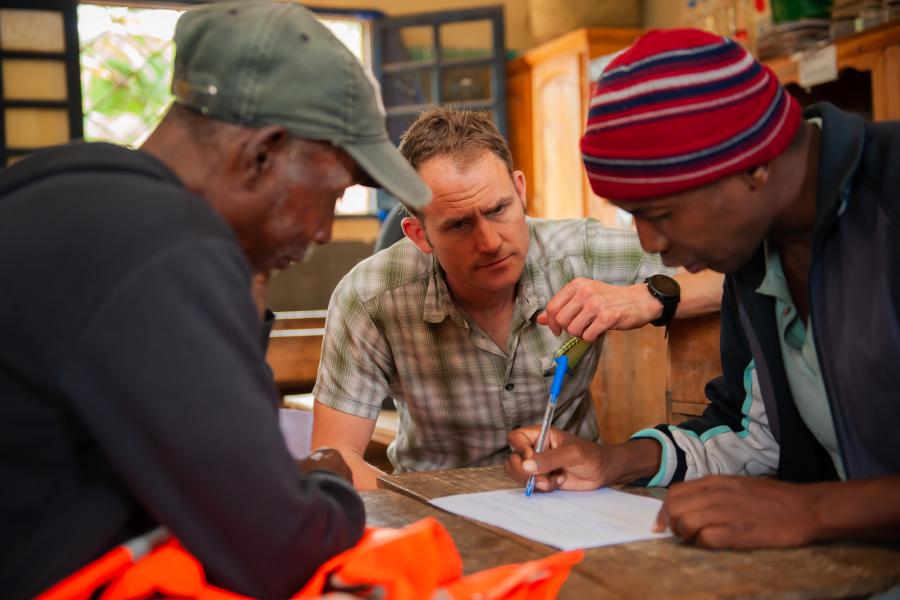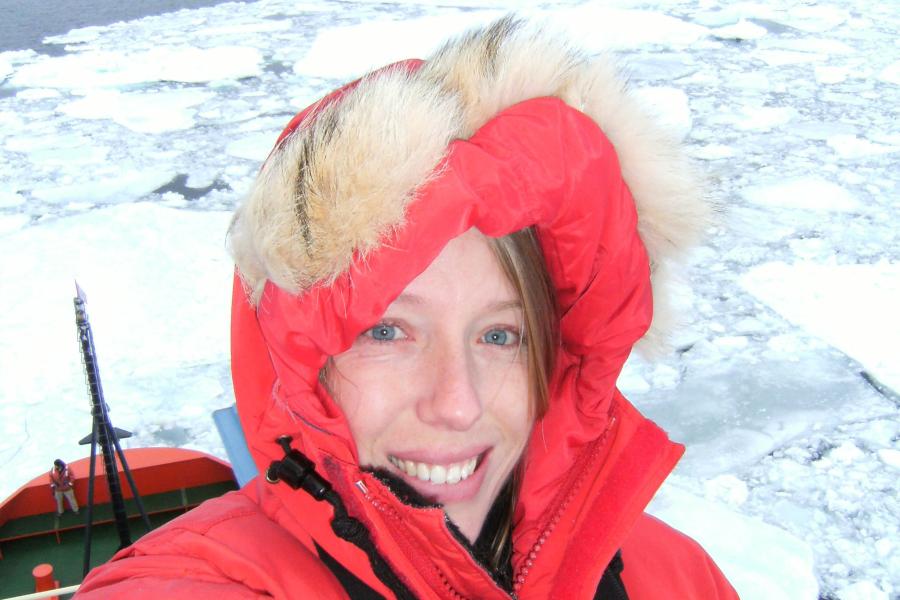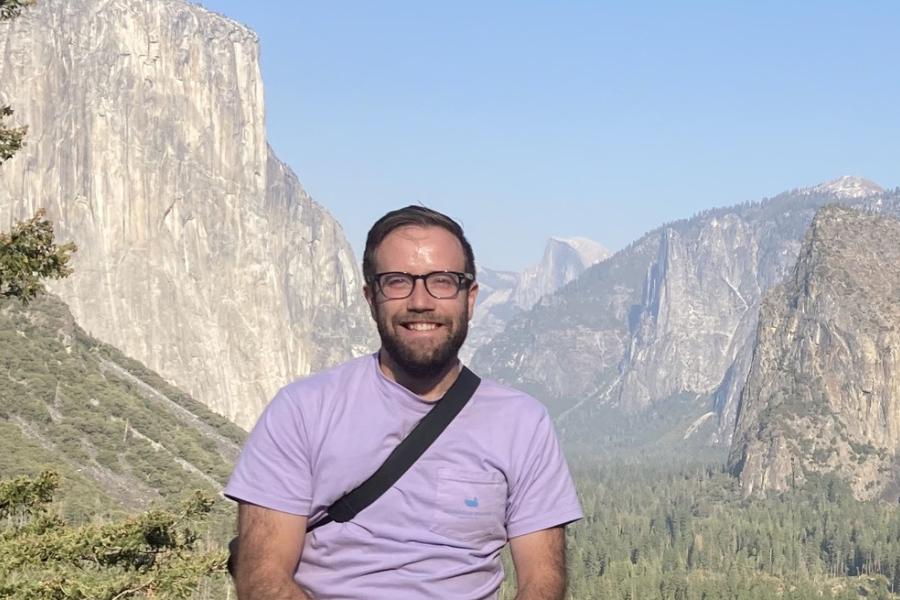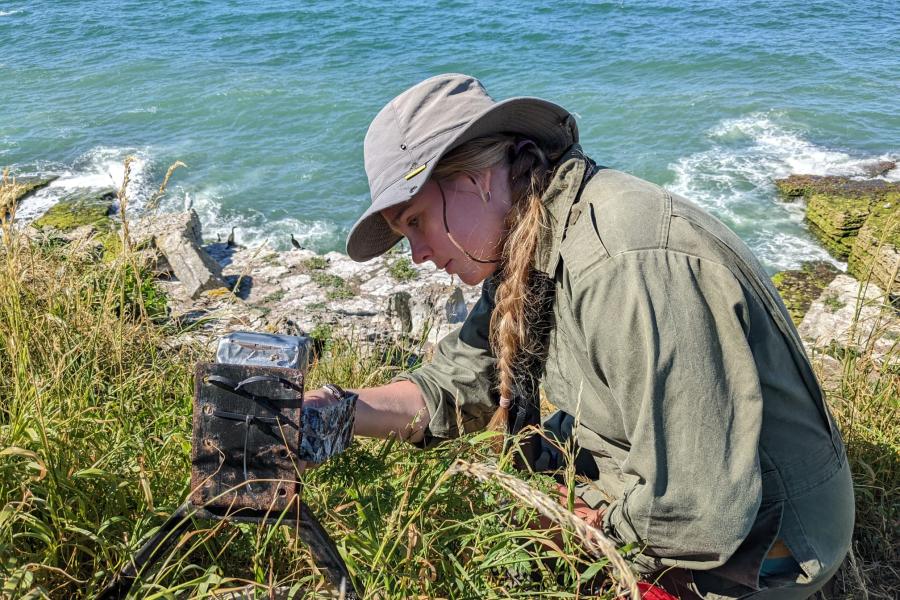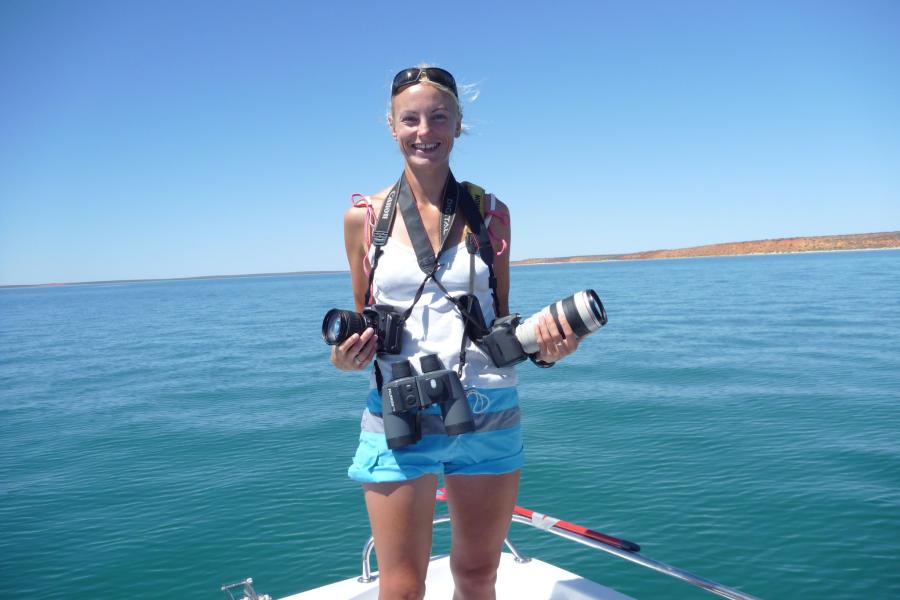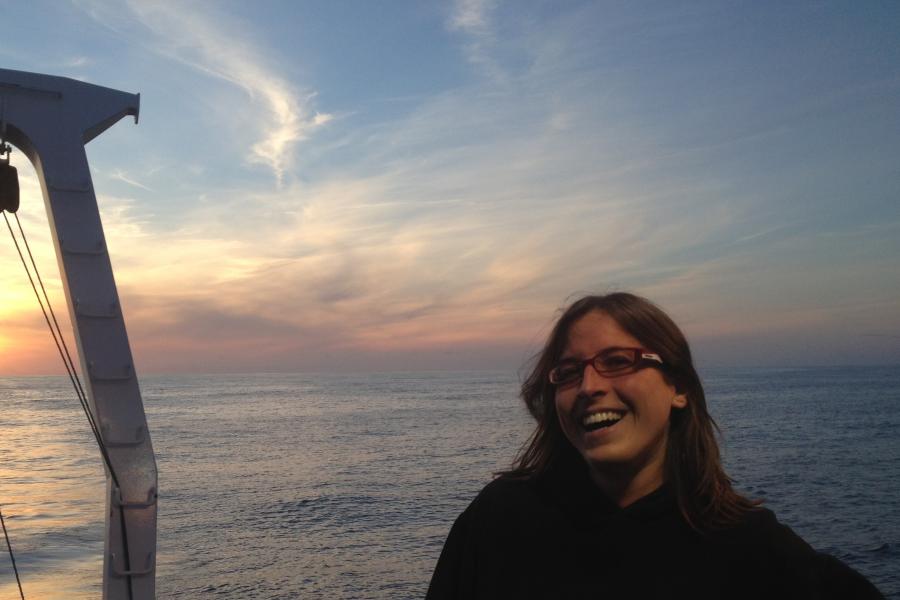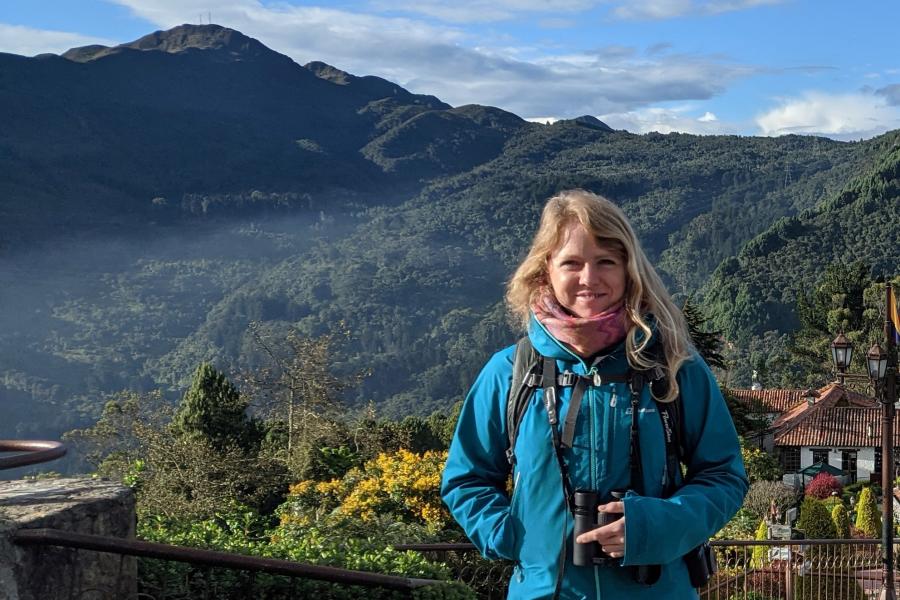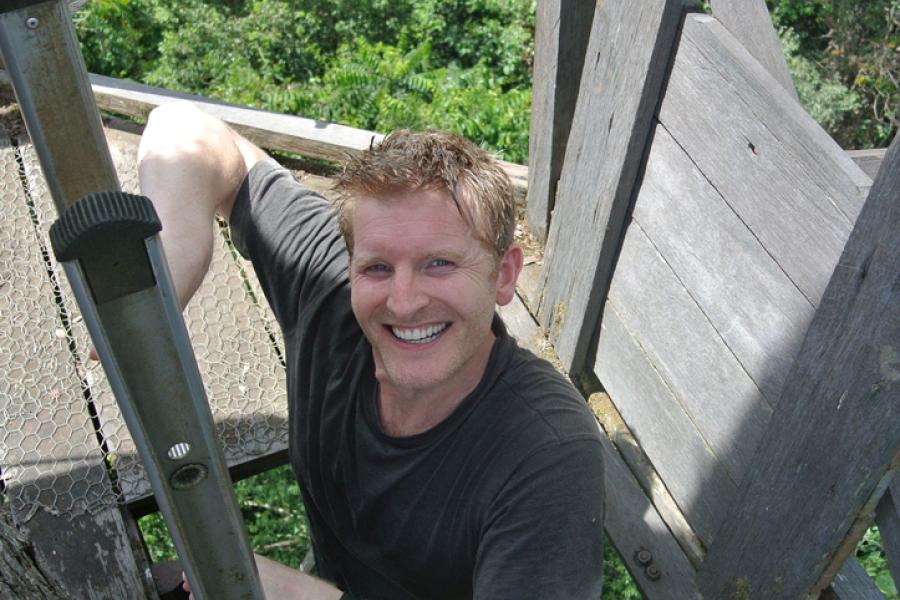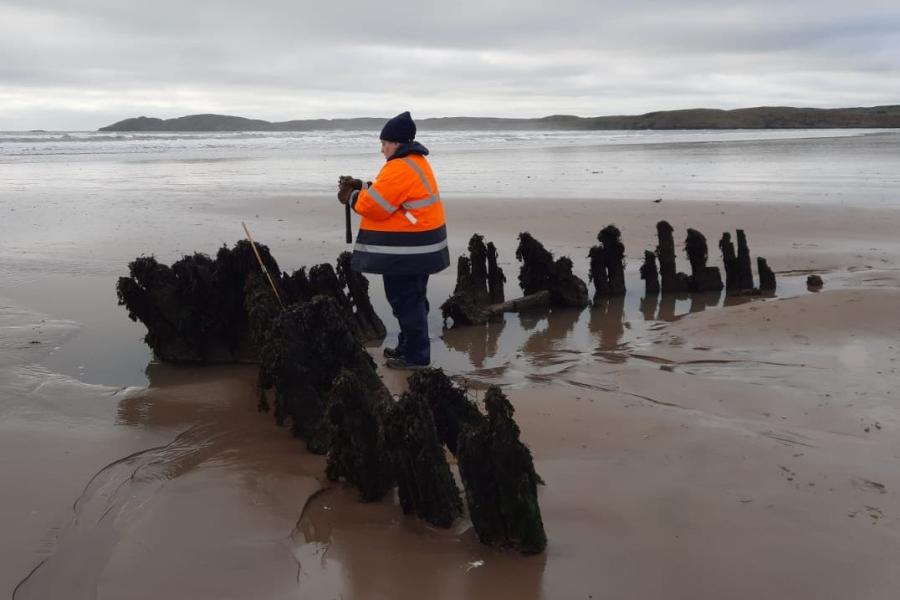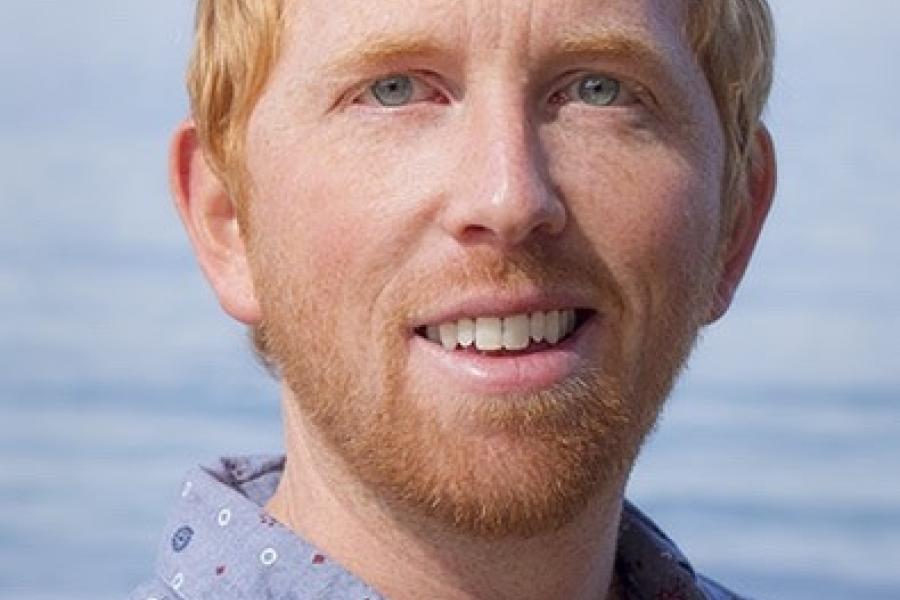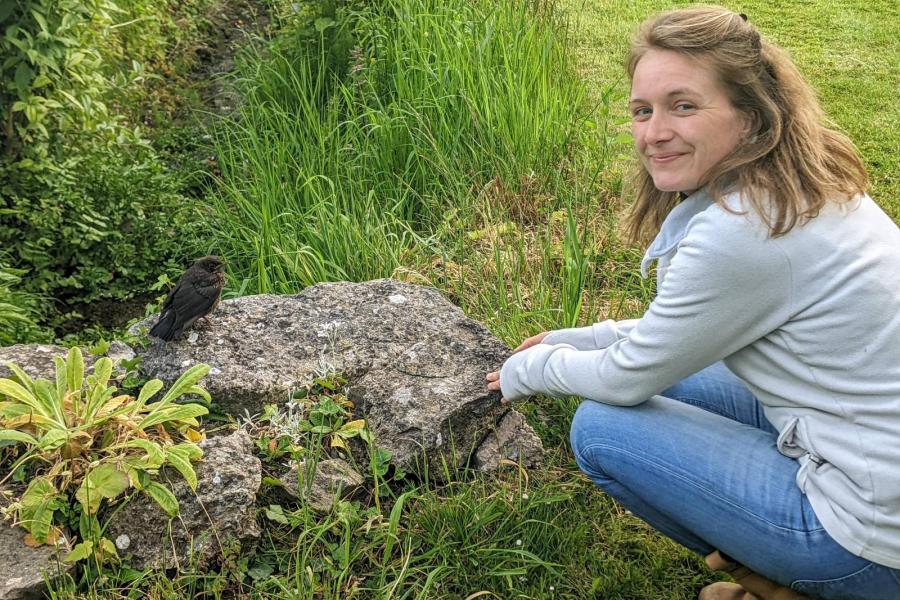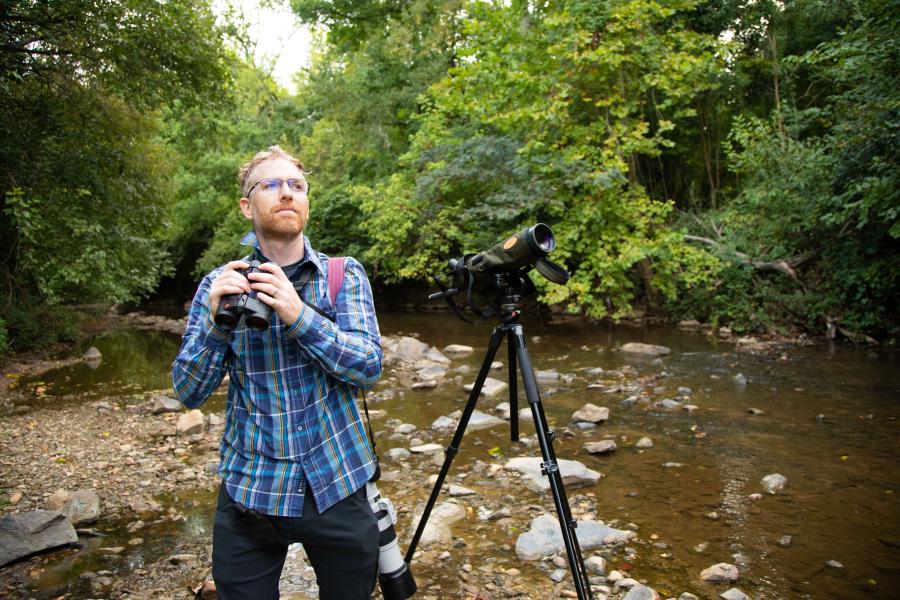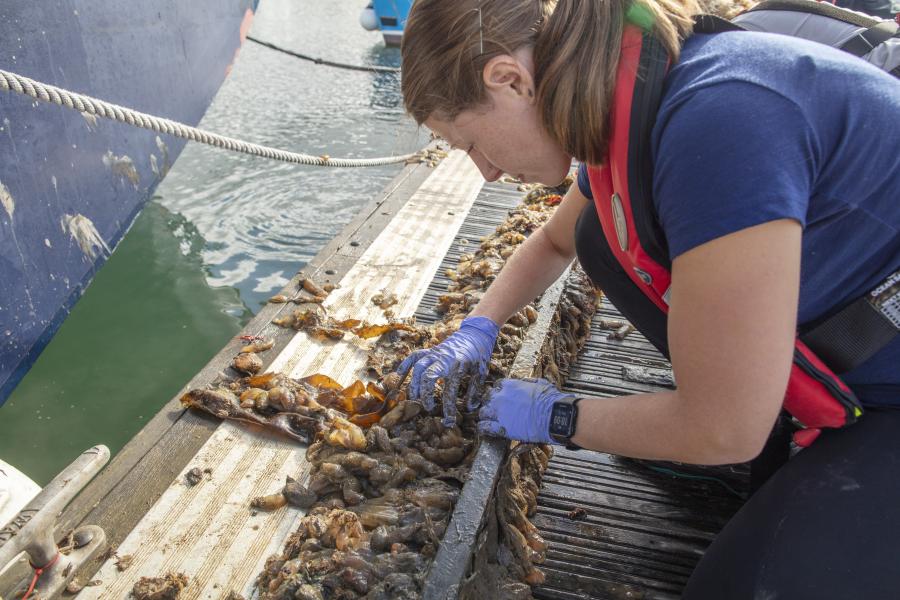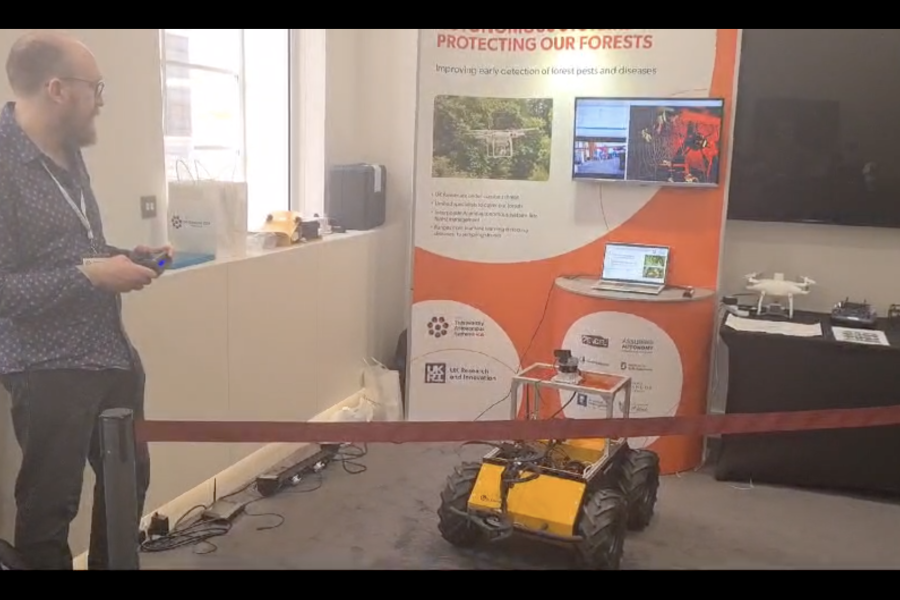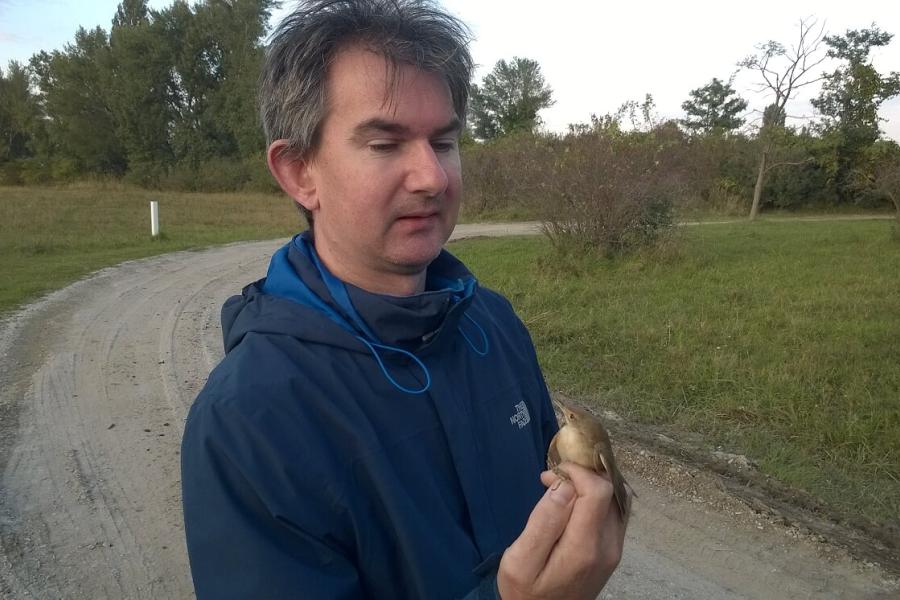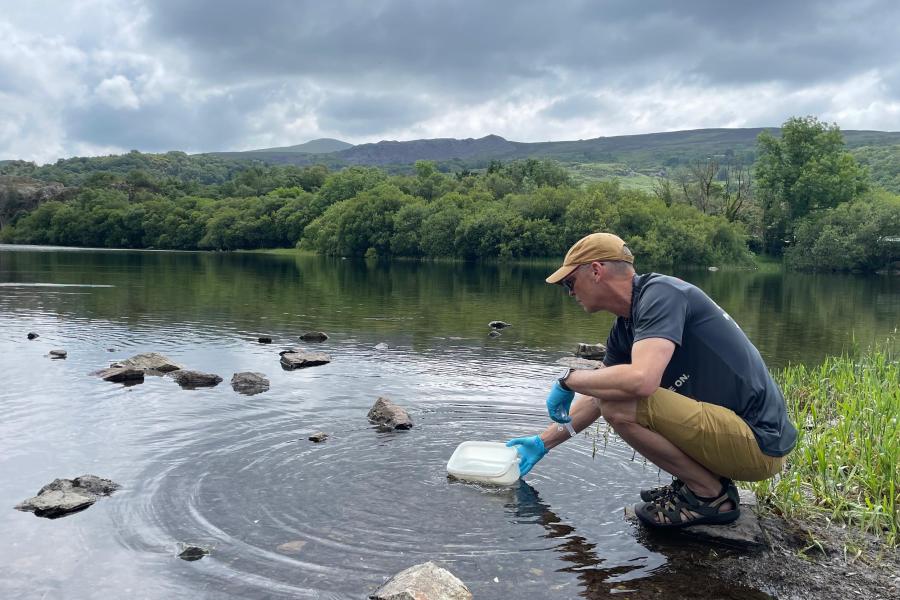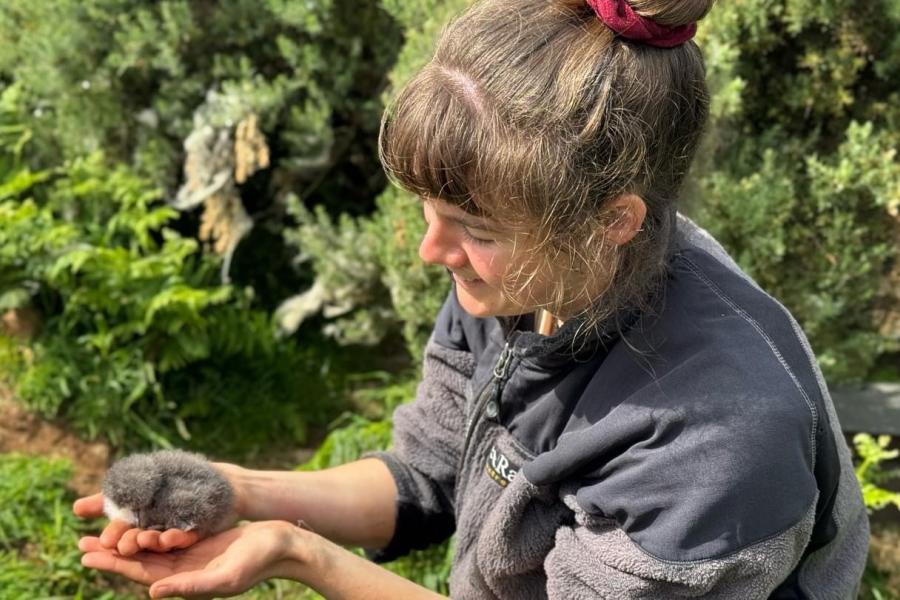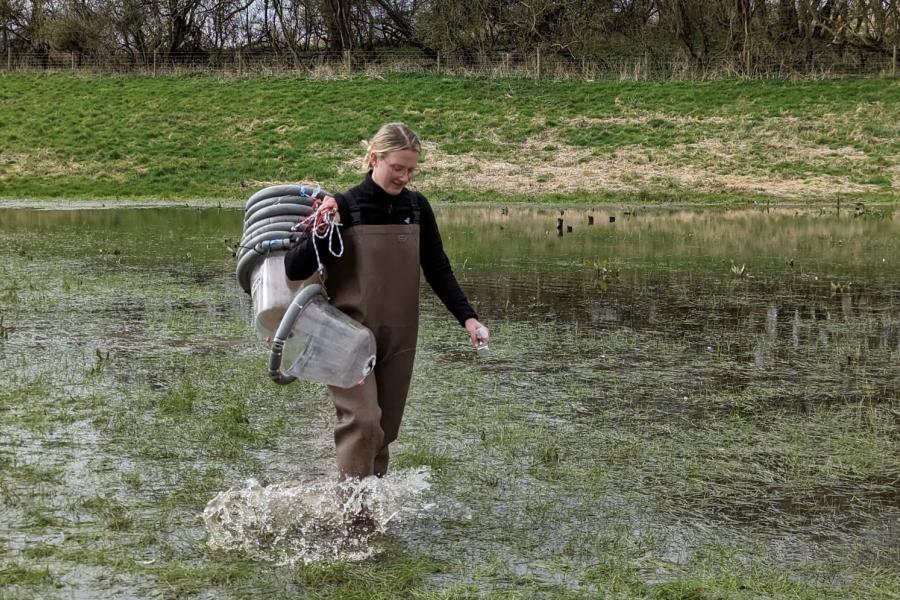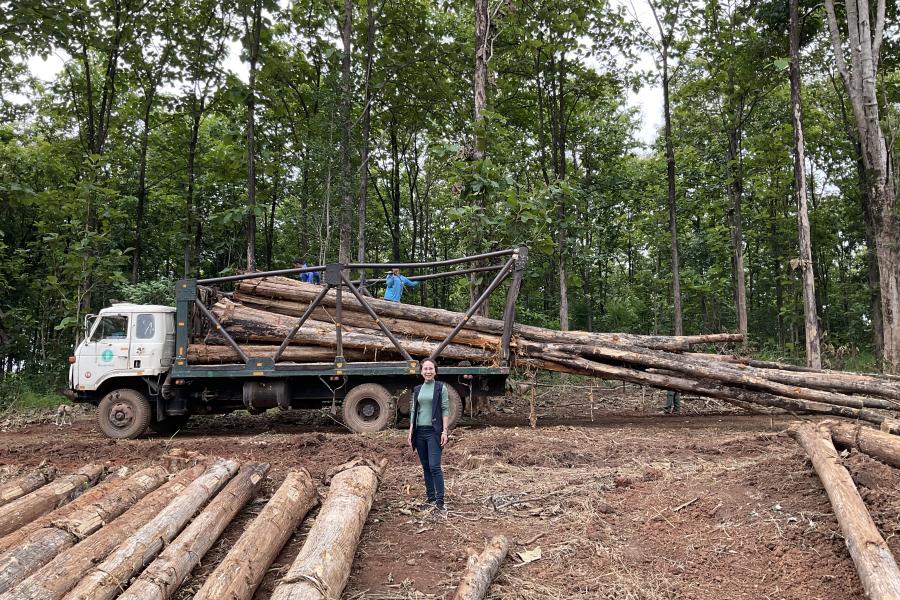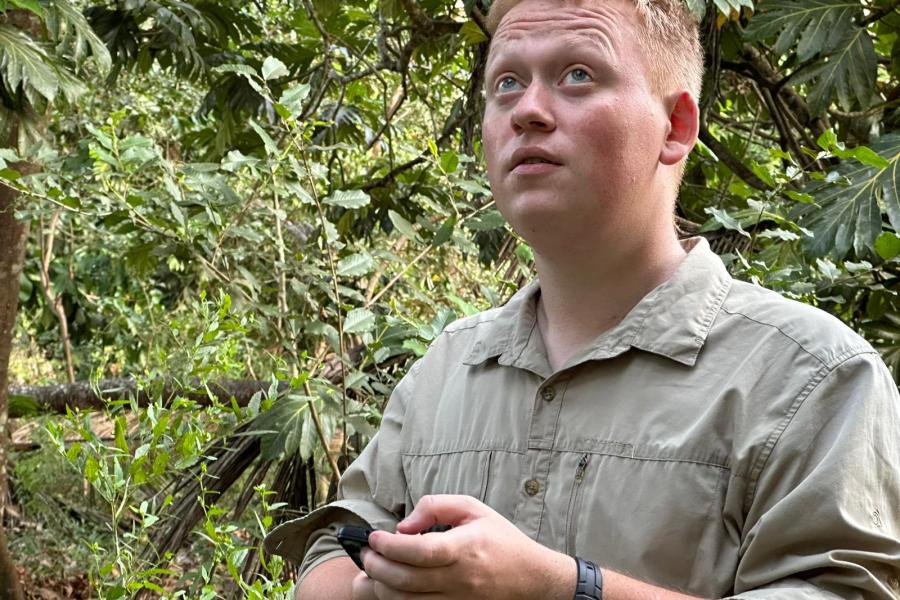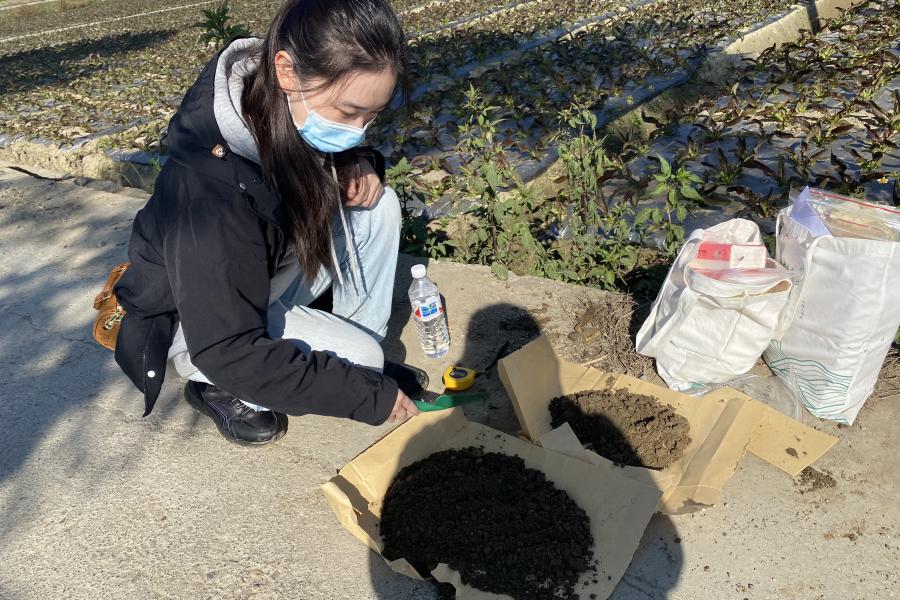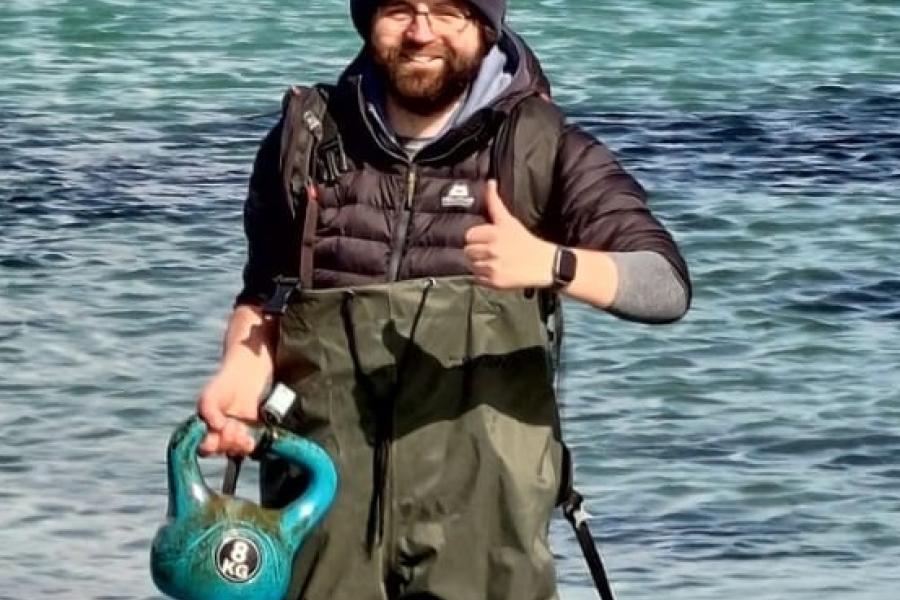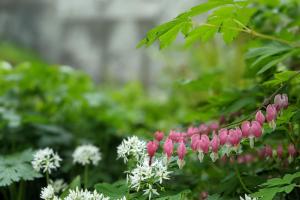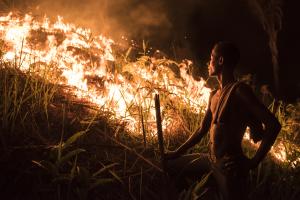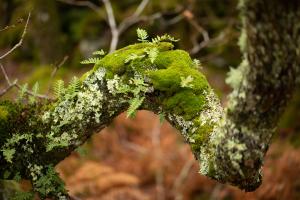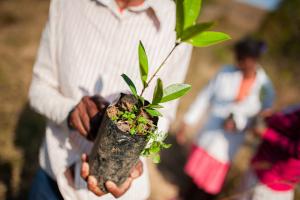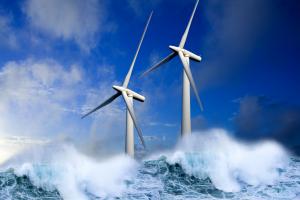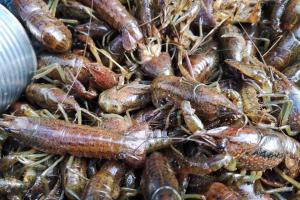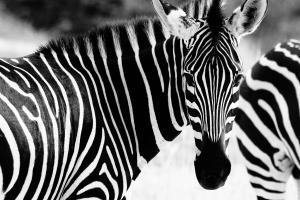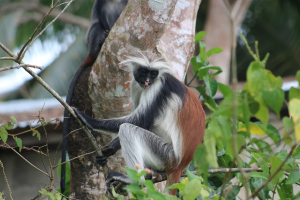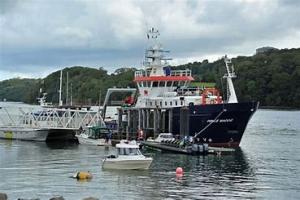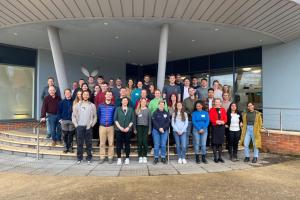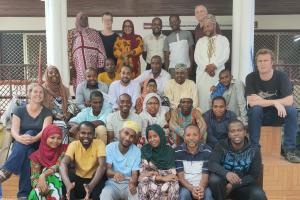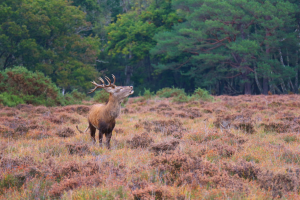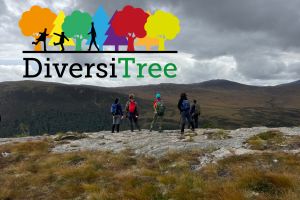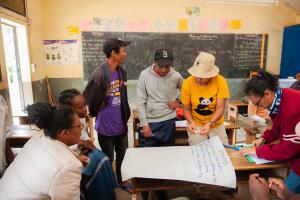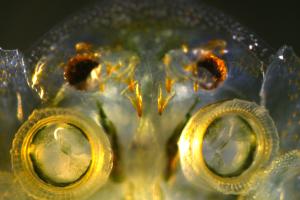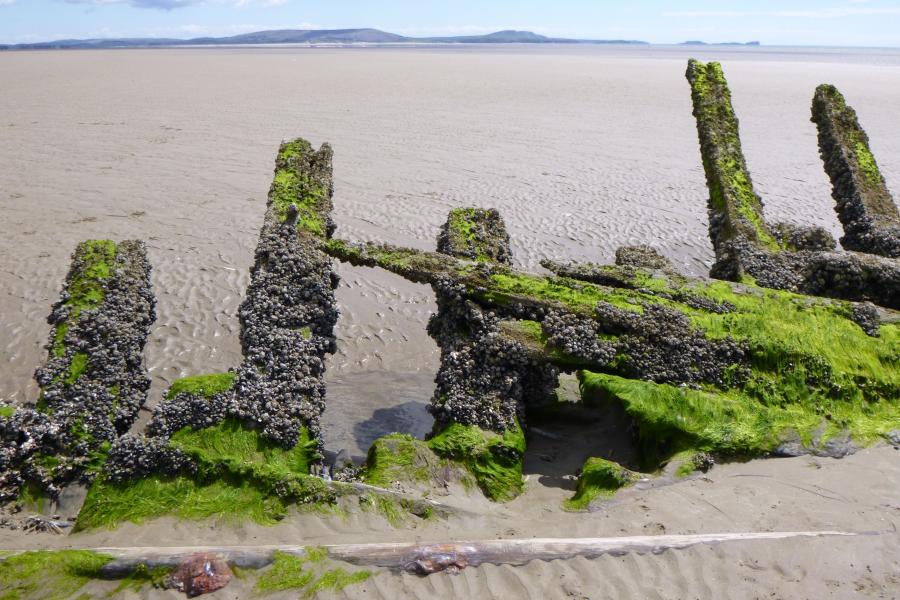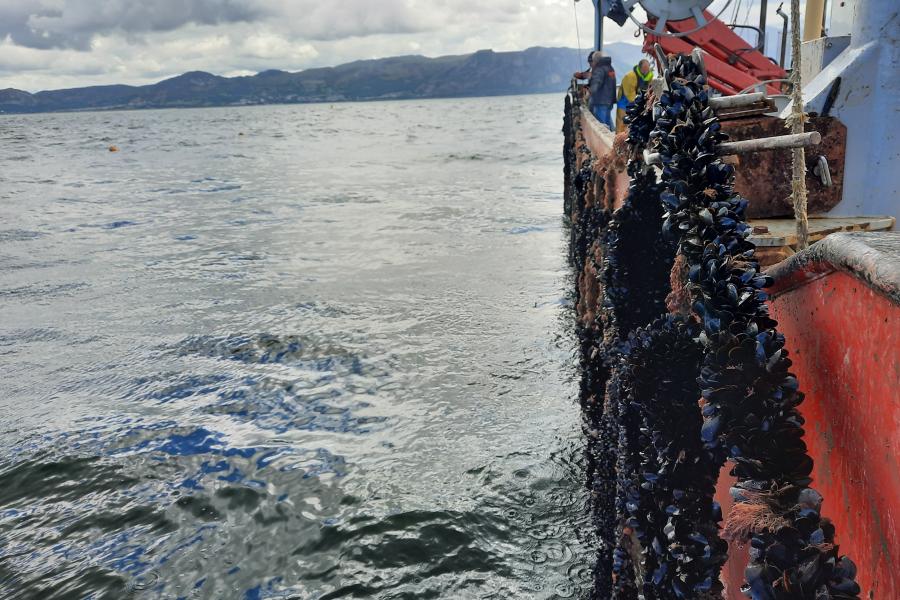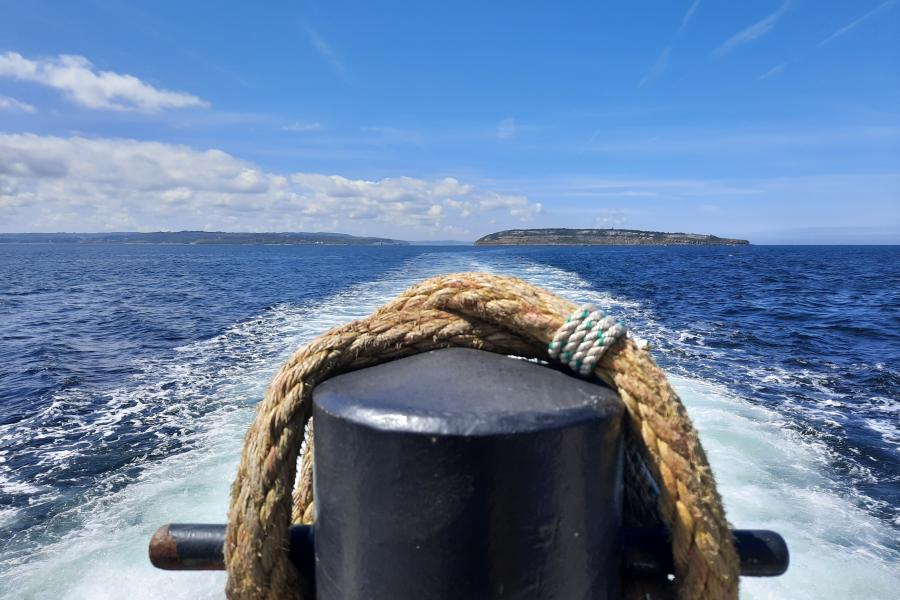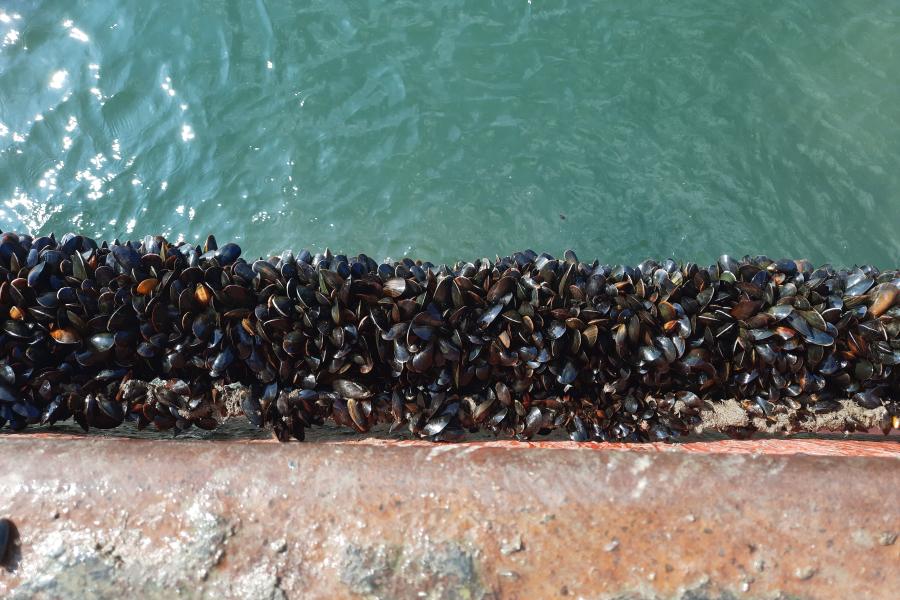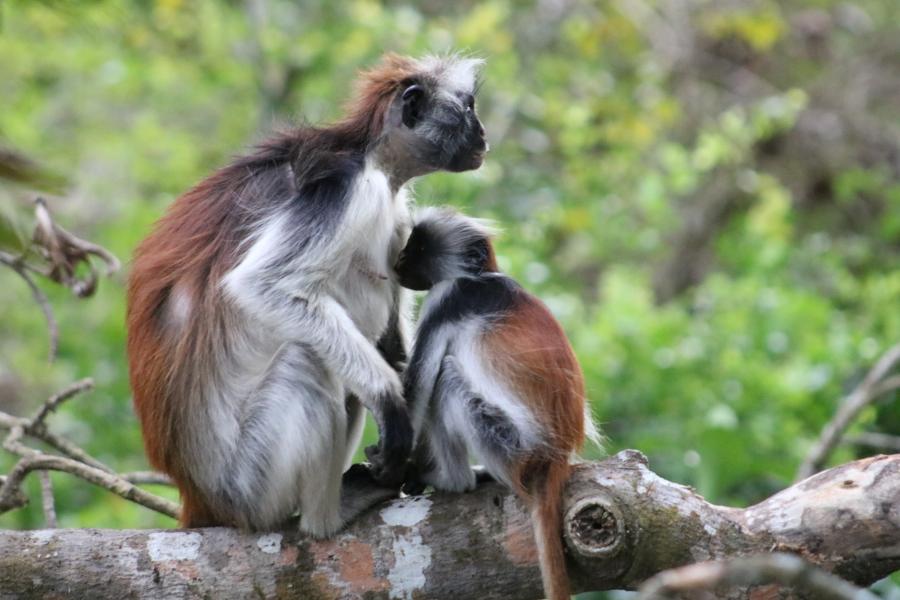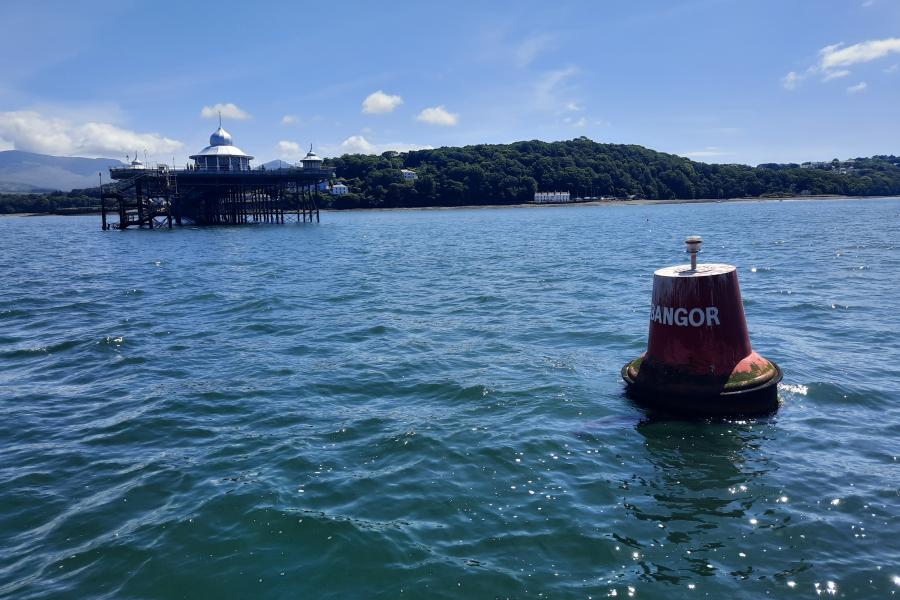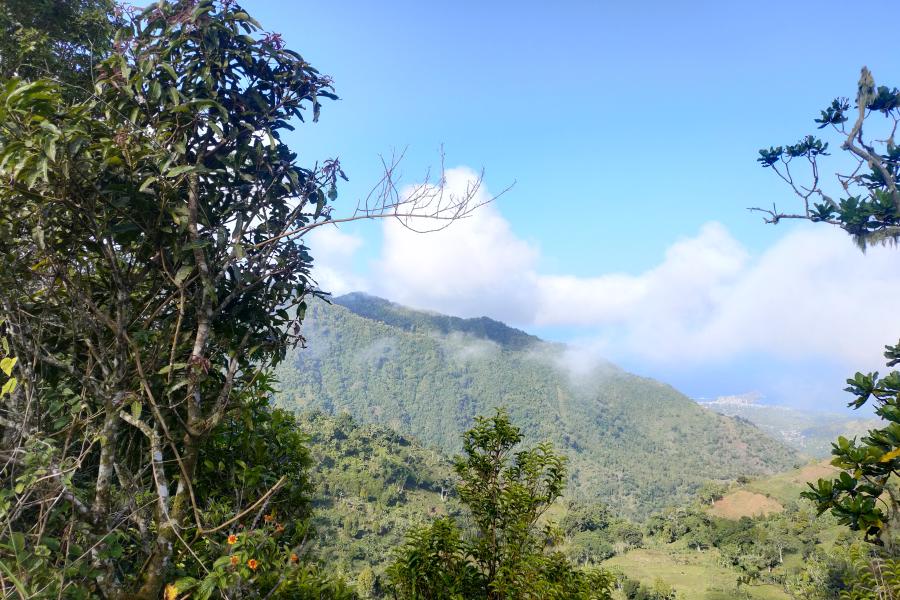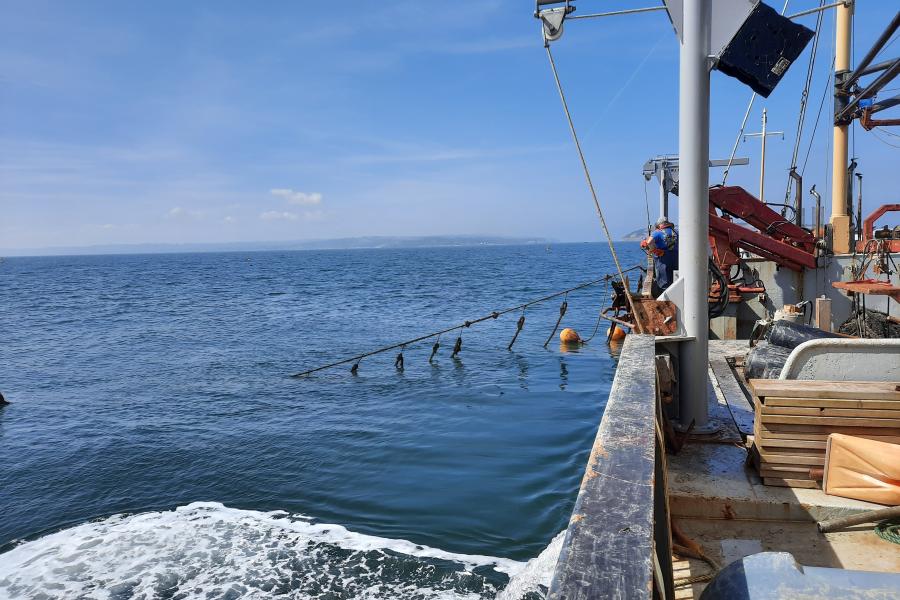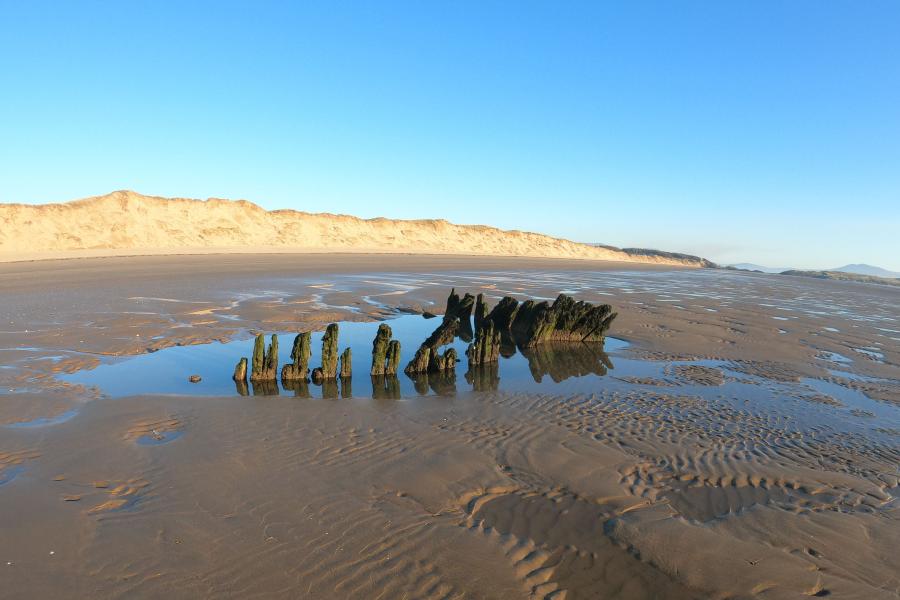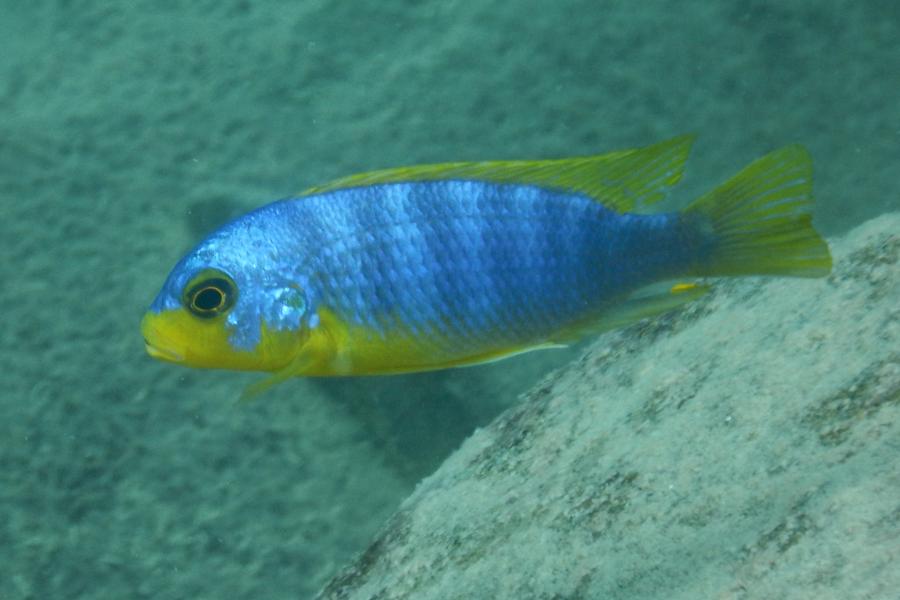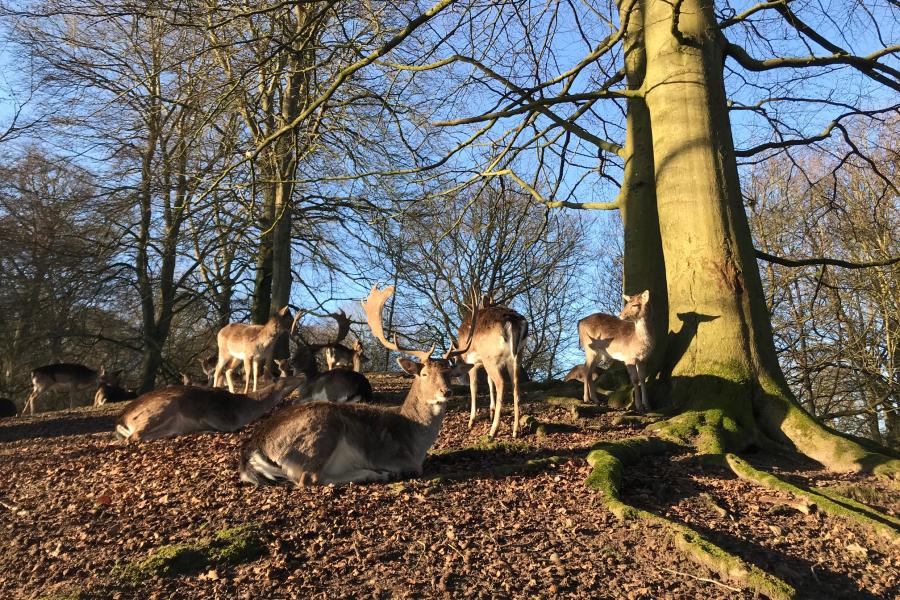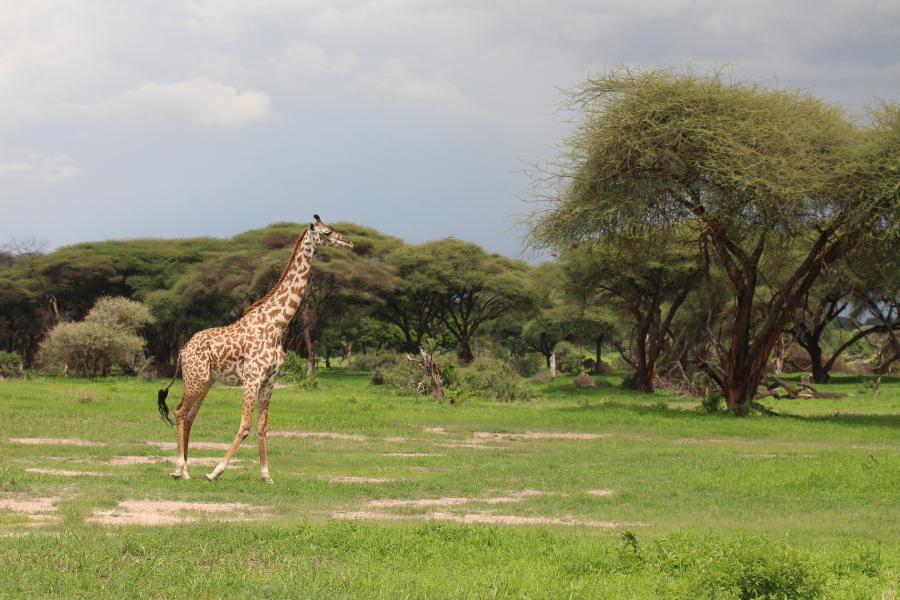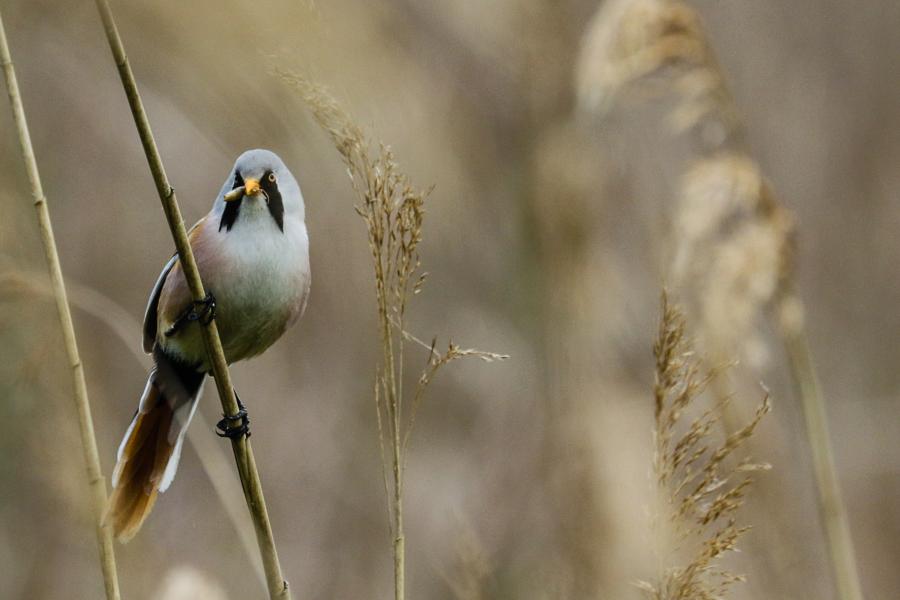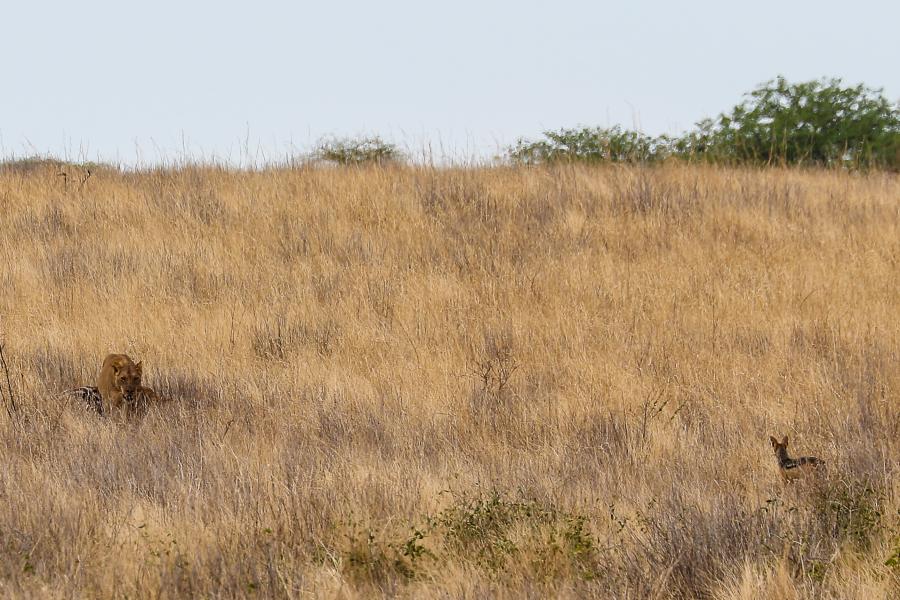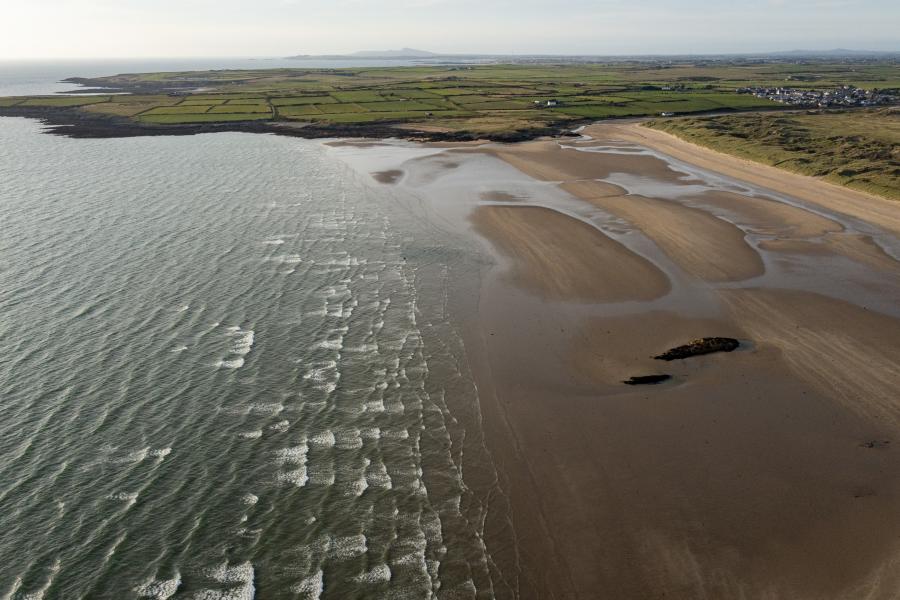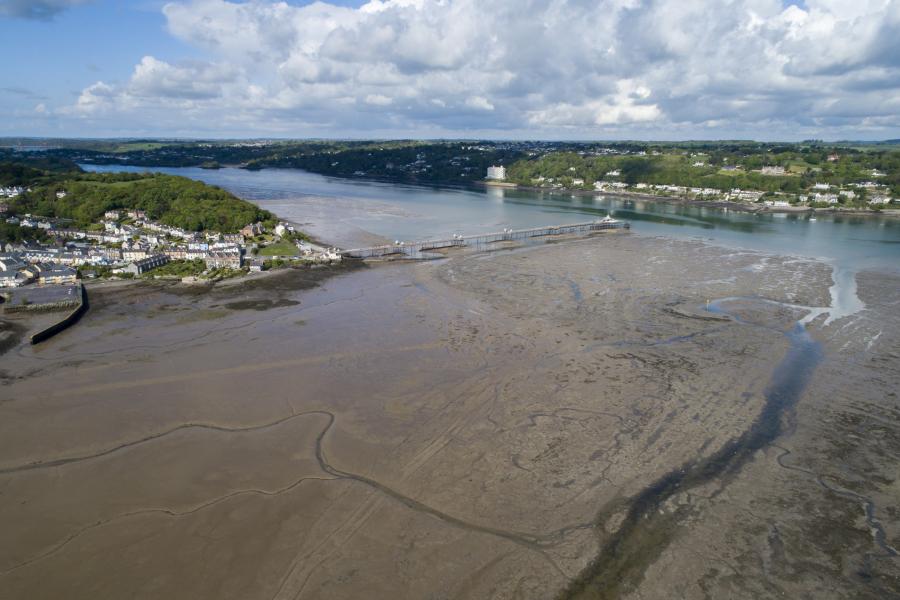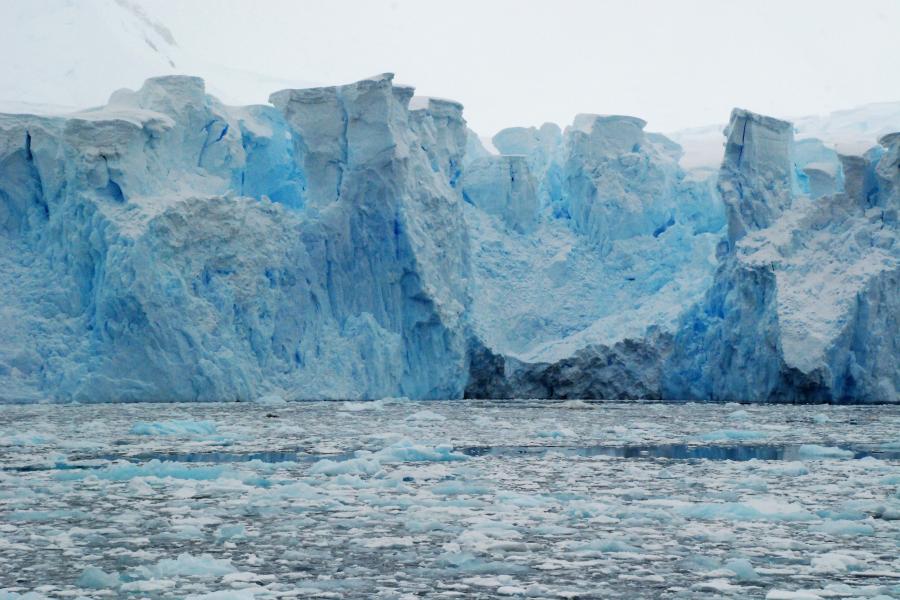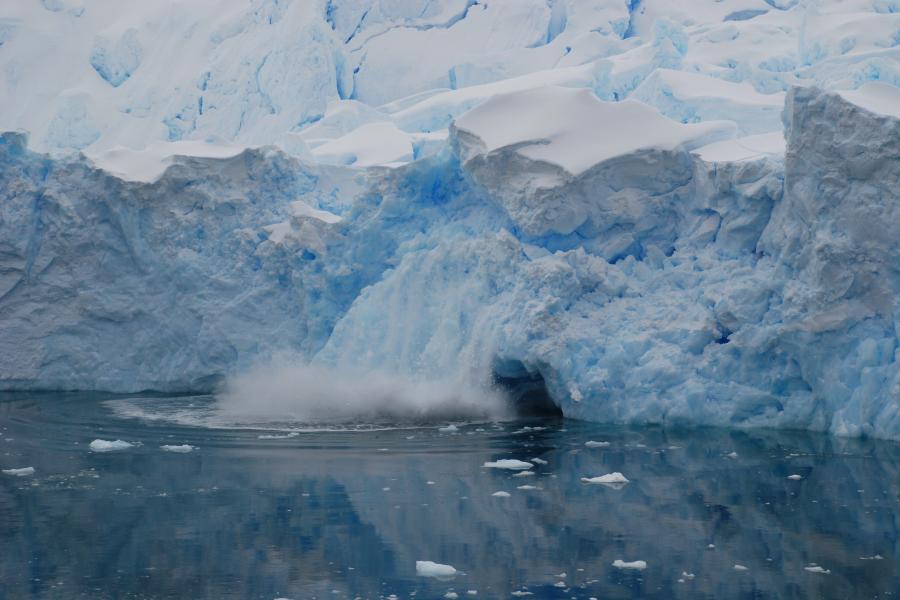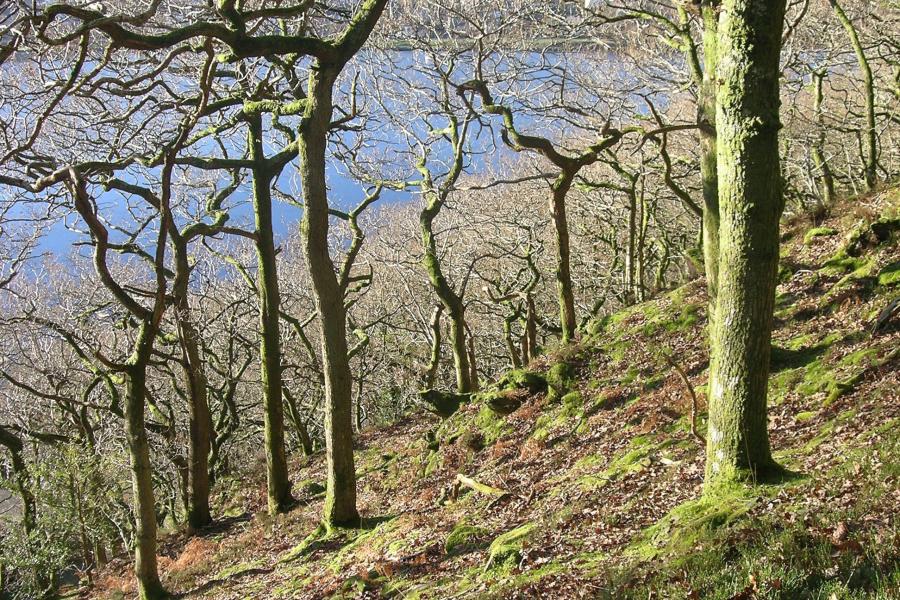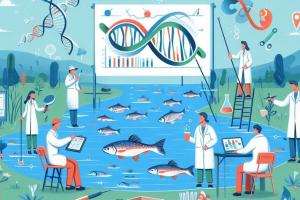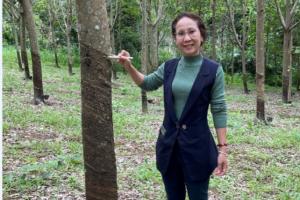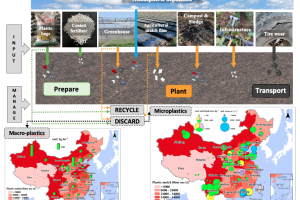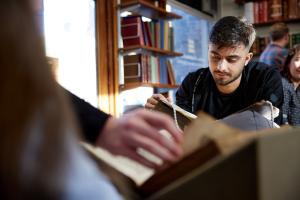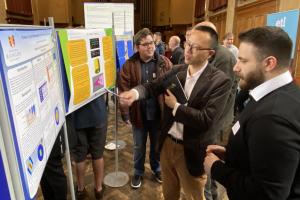The world is facing interlinked nature and climate emergencies. The conservation and restoration of resilient ecosystems have a central role to play in tackling both.
Our highly interdisciplinary research in this area brings together researchers from across the School of Environmental and Natural Sciences and the School of Ocean Sciences and from disciplines as varied as ecology, land system science, oceanography, remote sensing, physiology, behaviour, forestry, economics and policy.
We carry out cutting-edge research in a full range of terrestrial and marine habitats, from polar regions to the tropics. Our research is highly impactful. For example, our research on the impacts of bottom trawling, advancing agroforestry, and reducing the social costs of conservation in low-income countries contributed to Bangor University being ranked number one in the UK for the impact of our environmental science research in the 2021 Research Excellence Framework.
Our research facilities in this area are world-beating and include our ocean-going research vessel the Prince Madog, the Henfaes research farm, and Treborth Botanic Gardens
Featured researchers
Full researcher list
- Dr Rhea Burton (movement ecology, behaviour, zoo biology)
- Dr Aaron Comeault (evolution, conservation genomics, invasive species)
- Dr Winnie Courtene-Jones (plastic pollution, anthropogenic impacts, marine biology)
- Professor Simon Creer (molecular ecology, biodiversity)
- Dr Leejiah Dorward (conservation, social sciences, human behaviour)
- Dr Farnon Ellwood (ecology, biodiversity, ecosystem function)
- Dr Nathalie Fenner (peatlands, mangroves, algae)
- Dr Alexander Georgiev (primatology, conservation, ecophysiology)
- Dr James Gibbons (agriculture, greenhouse gases, biodiversity)
- Professor Julia Patricia Gordon Jones (biodiversity conservation, impact evaluation)
- Dr Laura Grange (ecology, seafloor ecosystems, climate change)
- Professor Robert Griffiths (microbes, soil functions, resistance mechanisms)
- Dr Tyler Hallman (landscape ecology, community (citizen) science, conservation)
- Dr Peter M. Haswell (conservation, ecology, environmental ethics)
- Professor John Healey (ecology, forestry, conservation)
- Professor Jan Geert Hiddink (fisheries, seabed ecosystems, bottom trawling)
- Dr Neal Hockley (land, conservation, governance)
- Professor Richard Holland (animal behaviour, animal cognition, zoology)
- Dr Harriet Ibbett (conservation, social sciences, human behaviour)
- Dr Benjamin Jarrett (invasive species, ecosystem services)
- Professor Stuart Jenkins (marine ecology, anthropogenic impacts, ecosystem management)
- Jonathan King (marine conservation, sustainable fisheries, aquaculture)
- Dr Ewa Krzyszczyk (behaviour, marine animals, conservation)
- Dr Kirsty McLeod (behavioural ecology, reptiles, environmental change)
- Dr Mark Mainwaring (impact of weather, nests and eggs, urbanisation)
- Dr Shelagh Malham (shellfish, marine pollution, aquaculture)
- Dr Anita Malhotra (snakes, Asia, species delimitation)
- Dr Lars Markesteijn (Tropical forest ecology, functional ecology, restoration ecology)
- Professor Morag McDonald (ecology, forestry, agroforestry)
- Dr Ian McCarthy (behaviour, physiological ecology, conservation)
- Dr Eefke Mollee (agroforestry, food security, urban forestry)
- Dr Rosemary Moorhouse-Gann (conservation, restoration, island ecosystems)
- Dr Alec Moore (historical ecology, fisheries, elasmobranchs)
- Dr Alex Papadopulos (conservation genetics, island ecology, botany)
- Dr Tim Pagella (restoration, socio-ecological systems, gender)
- Dr Sopan Patil (hydrology, climate and land use change, flood management)
- Professor Iestyn Pierce (wireless sensing of environmental variables)
- Dr Tim Peters (forestry, plant microbe symbiosis, tree nursery sustainability)
- Professor Andrew Pullin (evidence-based conservation, environmental management, policy)
- Dr Panagiotis Ritsos (information visualization, visual analytics, mixed and virtual reality, human-computer interaction)
- Dr Craig Robertson (benthic ecology, deep sea, ecosystem function)
- Professor Peter Robins (estuaries, hydrodynamics, modelling)
- Dr Graeme Shannon (behaviour, ecology, conservation)
- Professor Andy Smith (forest ecosystems, biogeochemistry, ecophysiology)
- Dr James Stuart-Smith (marine ecology, conservation, protected areas)
- Dr Benjamin Spielman (biogeography, phylogenetics, statistics)
- Dr Daniel Stuart (marine biogeochemistry, ocean acidification, marine pollution)
- Dr Svenja Tidau (global change biology, marine ecology, light and noise pollution)
- Dr James Waggitt (biophysical interactions, population ecology, marine top predators)
- Dr Sophie Wynne-Jones (environmental governance, human behaviour, human-nature relations)
- Dr Seumas Bates (anthropology, forestry, AI)
- Dr Sophie Berenice Wilmes (oceanography, marine ecosystem resilience, climate change)
- Dr Charlotte Colvin (marine biology, shellfish, fisheries)
- Dr David Fidler (microbial ecology, soil, functional ecology)
- Dr Daisuke Goto (ecosystem-approach to fisheries, stock assessment, management strategy evaluation)
- Dr Tom Galley (sustainable aquaculture, bivalve biology, reef fish)
- Charlotte Heney (marine biology, sustainable fisheries, marine protected areas)
- Dr Nick Jones (sustainable aquaculture, molluscan biology, reef fish)
- Dr Jessica Kevill (environmental virology, wastewater, public health)
- Miss Emily Phillips (Fisheries, sustainability and marine ecology)
- Dr Vahid Seydi (machine learning, data science, artificial intelligence)
- Dr William Schneider (behaviour, ecology, migration)
- Dr Morwenna Spear (forest products, sustainable wood composites, alternative timber species)
- Bex Turner (fisheries, shellfish, marine biology)
- Gemma Veneruso (marine biology, cetaceans, marine energy sector)
- Dr Sophie Ward (oceanography, climate change, ocean modelling)
- Dr Tim Whitton (marine ecology, fishing Impacts, seabed carbon)
- Anna Wood (forest restoration, molecular ecology, forests)
- Robbie Blackhall-Miles (botany, horticulture, restoration)
- Dr Liz Morris-Webb (marine conservation and resource management, marine survey, social science)
- Dr Craig Shuttleworth (red squirrel conservation)
- Dr Simon Valle (conservation planning, population dynamics, conservation ecology)
- Dr Sophie Williams (plant conservation, botanic gardens, socio-ecological systems)
- Sarah Al-Jutaili (fisheries , environment, shellfish)
- Daisy Alston (carbon storage, subsoils carbon dynamics, agriculture)
- Patrick Allsop (dispersal, behavioural plasticity, anthropogenic disturbance)
- Hana Amir (coral reef ecology, plasticity, oceanography)
- Jack Atkin-Willoughby (forester, conservationist, outdoor instructor )
- Ankita Bhattacharya (estuaries, flooding, groundwater)
- Rebecca Bracegirdle (herpetology, phenotypic adaptation, diet change)
- Claire Carrington (seabirds, behaviour, meteorology)
- Abi Cousins (climate change, anthropogenic pollution, wetlands)
- Amelia Corvin-Czarnodolski (seabirds, diet, eDNA)
- Penny Downes (conservation, human-wildlife interactions, behaviour)
- Ffion Evans (agriculture, circularity, policy)
- Lauren Evans (behavioural ecology, molecular ecology, oceanography)
- Lisa Goberdhan (marine biology, coral reef ecology, habitat ecology)
- Deanna Groom (underwater archaeology, ecosystems, climate change)
- Charlie Gregory (population genetics, bioinformatics, conservation)
- Jonathan Heath (marine, ecology, benthic)
- Ivonne Liliana Salamanca Leon (conservation, ecology, impact evaluation)
- Lorna McKellar (marine status assessment)
- Ben Owens (herpetology, snake population dynamics, herpetoculture)
- Rose Pugh (molecular ecology, evolution, amphibians)
- Siyang Ren (soil environment, microplastics, source analysis)
- Joe Roy (eco-psychology, conservation, wellbeing)
- Matt Scowen (ecosystem services, biodiversity, data-driven modelling)
- Saniye Smith (marine policy, co-management, fisheries)
- Marie Touchon (marine conservation, socioeconomics, mangroves)
- Nisabhat Tonwoot (forest certification, forest management, FSC certification)
- Iain Lettice
- Stevie Scanlan
- Lauren Sansom
- Emma Green
Latest News and Blog
See MoreUpcoming Events
Key projects
Researchers in this theme work on a wide variety of applied projects.
Key projects
Researchers in this theme work on a wide variety of applied projects.
See our work as our researchers see it
A picture says a thousand words - so please enjoy the gallery of some of the examples of the work we are involved in
Postgraduate Research Project Highlights
Our cutting-edge PGR projects are driving innovation across fields by exploring transformative ideas, advancing knowledge, and offering real-world solutions.
At Bangor research underpins the teaching that we do – you can study a wide variety of courses, at all levels, which build on the world-leading research we are doing which relates to the conservation and restoration of resilient ecosystems.
At Bangor research underpins the teaching that we do – you can study a wide variety of courses, at all levels, which build on the world-leading research we are doing which relates to the conservation and restoration of resilient ecosystems.

